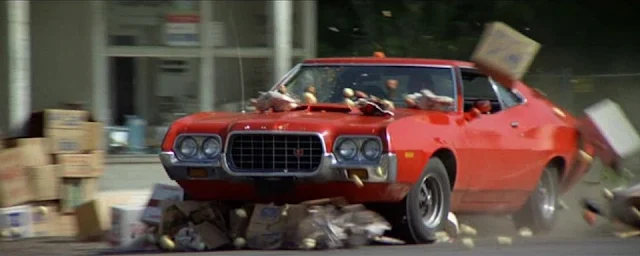
Cast: Barry Newman, Suzy Kendall, John Vernon, Dolph Sweet, Ben Kingsley, Ray McAnally, Peter Marinker, Elliott Sullivan. Screenplay: Robert Carrington, based on a novel by Alistair MacLean. Cinematography: Alex Thomson. Production design: Syd Cain, Maurice Carter. Film editing: Ray Lovejoy. Music: Roy Budd.
Fear Is the Key is a somewhat preposterous thriller that begins well with the protagonist resisting arrest and arraignment and leading law enforcement on a car chase through the Louisiana bayous and backroads. And it ends well with a scene of high suspense in a bathyscaphe under the waters of the Gulf of Mexico. But what comes in between is often muddled and hard to follow, with too much exposition crammed into too tight a space. Barry Newman plays John Talbot, an underwater salvage expert who winds up working for some crooks in the employ of a wealthy oil company executive, trying to retrieve a fabulous fortune from the undersea wreckage of an airplane. For much of the film, it looks like a case of bad guys vs. worse guys: Talbot as we see him is a stone-cold killer, who guns down a deputy in the courtroom where he's being arraigned, kidnaps a woman in the courtroom, and takes her along on the aforementioned high-speed chase, driving a stolen car. But then there's a twist in mid-film, one that necessitates Talbot doing a lot of gabbled explanation to the terrified hostage, Sarah Ruthven (Suzy Kendall), who turns out to be the oilman's daughter. Well, if she can believe him after he's put her life in serious danger speeding through the backwoods, why can't we? John Vernon is the chief villain, and his sinister sidekick is played by Ben Kingsley in his film debut; he looks a little confused about what he's being asked to do. This is one of those movies to ride along with and not think about much while you're doing it or afterward.



.jpg)